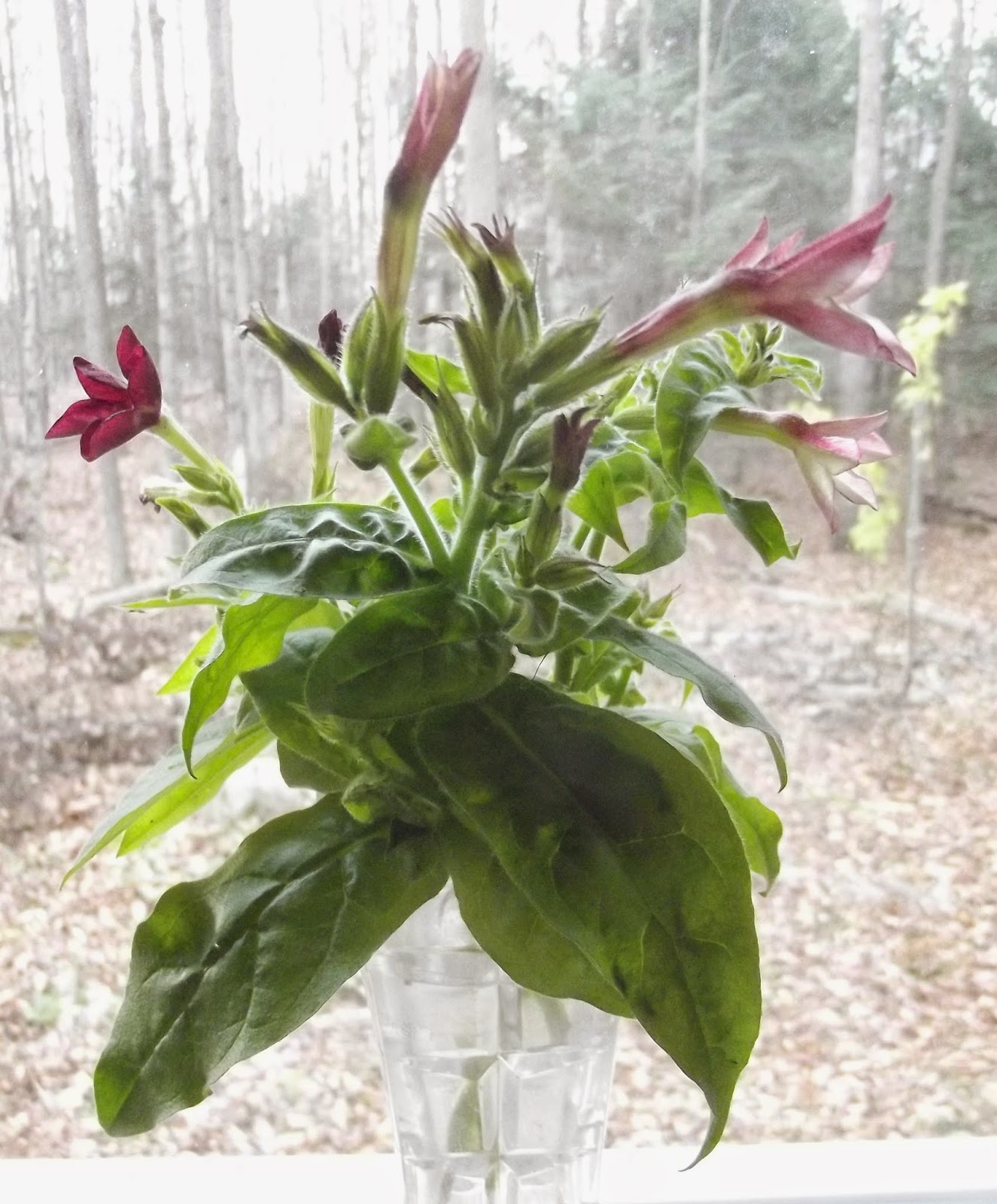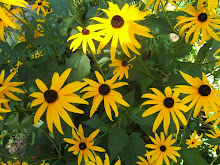Sunday, November 23, 2014
When The Sky Comes Near
When the sky comes near,
Azure blue, cobalt blue,
Pow-der blue,
Unbounded
With
Billowy, ballooning,
Bold, breath-taking clouds
Below shrinks and fades.
Friday, November 21, 2014
Quiet Light
The little stream has been damned up by the beavers - about halfway up the photo you can see the raised water level behind the damn.
The seedpods of the weeds catch the November light.
Like little LEDs in the tangle of grey and brown branches.
The dried bullrushes shine like bronze.
A hole in the frozen pond ice allows a reflection to show.
This photo was supposed to feature a blue heron . Oh well, I got to see him.
This past week, we had snow but it is too early for snow pictures so these pics are from a little while ago.
The seedpods of the weeds catch the November light.
Like little LEDs in the tangle of grey and brown branches.
The dried bullrushes shine like bronze.
A hole in the frozen pond ice allows a reflection to show.
This photo was supposed to feature a blue heron . Oh well, I got to see him.
This past week, we had snow but it is too early for snow pictures so these pics are from a little while ago.
Friday, November 14, 2014
Stocking Up Squirrel Style
Some squirrel has done quite the job of stashing the apples on this apple tree.
A squirrel with good spatial abilities as he knew just how full to fill this hollow.
Just a few lonely apples left on the branches.
These apples are conveniently placed for a picnic on a sunny day.
A perfectly poised apple . Good engineering skills, too.
A squirrel with good spatial abilities as he knew just how full to fill this hollow.
Just a few lonely apples left on the branches.
These apples are conveniently placed for a picnic on a sunny day.
A perfectly poised apple . Good engineering skills, too.
Thursday, November 6, 2014
Eking out some colour
I picked a few last bits and pieces from the garden. I never realized that nicotiana had fuzzy petals.
The nicotiana is very sturdy and has kept growing through the cooler weather, although now it is finally going dormant.
Some pink flash from a geranium. Because we have so many trees on our property, it can be hard to find enough sunny spots for the plants in the summer, but the upside is that we are protected from early hard frost in the fall so we get to enjoy the flowers for a little bit longer than people with more exposed gardens.
We may get a few flakes of snow this weekend.
The nicotiana is very sturdy and has kept growing through the cooler weather, although now it is finally going dormant.
Some pink flash from a geranium. Because we have so many trees on our property, it can be hard to find enough sunny spots for the plants in the summer, but the upside is that we are protected from early hard frost in the fall so we get to enjoy the flowers for a little bit longer than people with more exposed gardens.
We may get a few flakes of snow this weekend.
Saturday, November 1, 2014
Lazy Girl Gardening
Some of the last few tomatoes I picked a couple of days ago.
I wanted to turn this weedy patch of ground into a grassy area. My usual modus operandi for sites like is to mulch over with newspapers and put soil on top. First, I cut any shrubby stuff down to ground level and pull up any tall weeds that want to come out. Then, I put down a layer of newspapers 6 - 10 sheets thick right on top of the weeds. Finally, I dump on composted manure or other topsoil aiming for a depth of about 4".
Here's the same spot about 1 1/2 hours later. The soil is only 2" deep but I'll put on more another day. In the spring, it will be ready for seeding.
This is a little patch of |Brunnera that I put in at the end of |August in the area next to the newly mulched one, using the same newspaper technique. The transplants have already rooted well and have put out quite a bit of new growth. The "growing on the top" method is good for lots of vigorous, shallow rooted plants like Brunnera, beebalm, rudbeckia, hostas, daylilies, etc., but isn't suitable for plants that need good soil to a deeper depth like roses, or delphiniums. I have used it with phlox but those plants need topdressing every year to keep them growing well.
I wanted to turn this weedy patch of ground into a grassy area. My usual modus operandi for sites like is to mulch over with newspapers and put soil on top. First, I cut any shrubby stuff down to ground level and pull up any tall weeds that want to come out. Then, I put down a layer of newspapers 6 - 10 sheets thick right on top of the weeds. Finally, I dump on composted manure or other topsoil aiming for a depth of about 4".
Here's the same spot about 1 1/2 hours later. The soil is only 2" deep but I'll put on more another day. In the spring, it will be ready for seeding.
This is a little patch of |Brunnera that I put in at the end of |August in the area next to the newly mulched one, using the same newspaper technique. The transplants have already rooted well and have put out quite a bit of new growth. The "growing on the top" method is good for lots of vigorous, shallow rooted plants like Brunnera, beebalm, rudbeckia, hostas, daylilies, etc., but isn't suitable for plants that need good soil to a deeper depth like roses, or delphiniums. I have used it with phlox but those plants need topdressing every year to keep them growing well.
Subscribe to:
Comments (Atom)




















